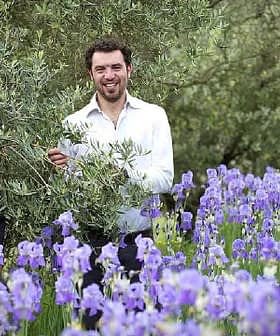 6.3K reads
6.3K readsHealth
Oleocanthal-Based Treatment Shows Promise Against Aggressive Type of Breast Cancer
Researchers at the University of Louisiana-Monroe have found that oleocanthal, a compound in extra virgin olive oil, could be part of targeted therapy for triple-negative breast cancer patients, a particularly aggressive form of breast cancer. The study showed that oleocanthal may suppress tumor growth and provide a specific treatment for selected TNBC patients, potentially paving the way for clinical testing in humans.
Oleocanthal, a phenolic compound found in extra virgin olive oil, may be effective as part of targeted therapy for triple-negative breast cancer (TNBC) patients, according to a new study from researchers at the University of Louisiana-Monroe.
This highly aggressive form of breast cancer, which is defined by the lack of ER, PR and HER2 expression genes, is pathologically aggressive with a high risk of recurrence, making the disease difficult to control.
This study means oleocanthal is nearly ready for clinical testing in human TNBC patients and survivors.
The American Cancer Society estimates that 281,550 new cases of invasive breast cancer will be diagnosed in the United States in 2021, with an estimated 44,130 deaths occurring as a result.
However, Khalid El Sayed, the lead author of the study and a cancer researcher at the university, believes that oleocanthal may hold the key to reversing the disease’s unfavorable prognosis.
See Also:Health NewsHe told Olive Oil Times that epidemiological studies with Mediterranean populations following a traditional Mediterranean diet rich in extra virgin olive oil have a lower incidence of colon and breast cancers than other European or North American populations. The presence of oleocanthal in extra virgin olive oil may be the reason why.
“Since 2011, we have been developing oleocanthal as a suppressor [for TNBC], which lacks effective targeted therapies, unlike other breast cancer phenotypes,” El Sayed said.
“TNBC is the most fatal breast cancer type,” he added. “We began with validating results in cell cultures, identifying molecular targets and validating activity in nude mouse models.”
The latest study investigated the ability of an oleocanthal-xylitol formulation to suppress the initiation and progression of breast cancer by using advanced preclinical transgenic mouse models.
A comparison was carried out on the molecular signature of oleocanthal treatment using the transgenic mouse model and a human patient-derived xenograft, an experimental model in which human cancer cells are transplanted into immunodeficient mice.
This exposed overlapping affected genes in both models, providing solid evidence for oleocanthal as a specific treatment for selected TNBC patients. The results of the study showed that the oleocanthal-xylitol administered had the effect of suppressing tumor growth. Structural changes in the tumor were also observed.
The differences among the affected genes were identified through gene expression, showing an overlap between mouse and human tumor models. This enabled El Sayed and his team to understand the oleocanthal anticancer molecular mechanism better and predict prospective clinical outcomes.
The study further provided molecular and preclinical evidence demonstrating the potential of oleocanthal as a nutraceutical, which may be applied to control TNBC.
El Sayed said that this has helped pave the way for clinical testing of oleocanthal in humans.
“Chemical and biological stability of oleocanthal was maintained, and anti-TNBC activity was achieved with models from actual patients,” El Sayed said. “[We received] insights on molecular mechanisms and their effects against TNBC in humans, narrowing the gap in clinical validations of the anti-cancer effects of extra virgin olive oil phenolics.”
“This study means oleocanthal is nearly ready for clinical testing in human TNBC patients and survivors,” he added. “We plan to compete for the Phase II funding [from the National Cancer Institute] award this year, which will put us several steps forward for human clinical trials.”
El Sayed hopes that using oleocanthal as a nutraceutical will have fewer side effects than other anti-cancer drugs while still demonstrating a high efficacy.
“Our main concern is the safety and efficacy of any nutraceutical interventions, as anti-cancer pharmaceuticals have side effects,” he said. “We do not want to see oleocanthal nutraceuticals causing even 10 percent of these side effects.”
“The advantages of the long-term use of oleocanthal by TNBC patients include its cost-effectiveness due to its sustained plant supply, high level of safety, which is based on the long human history of extra virgin olive oil consumption, and its novel molecular mechanism,” El Sayed concluded.









